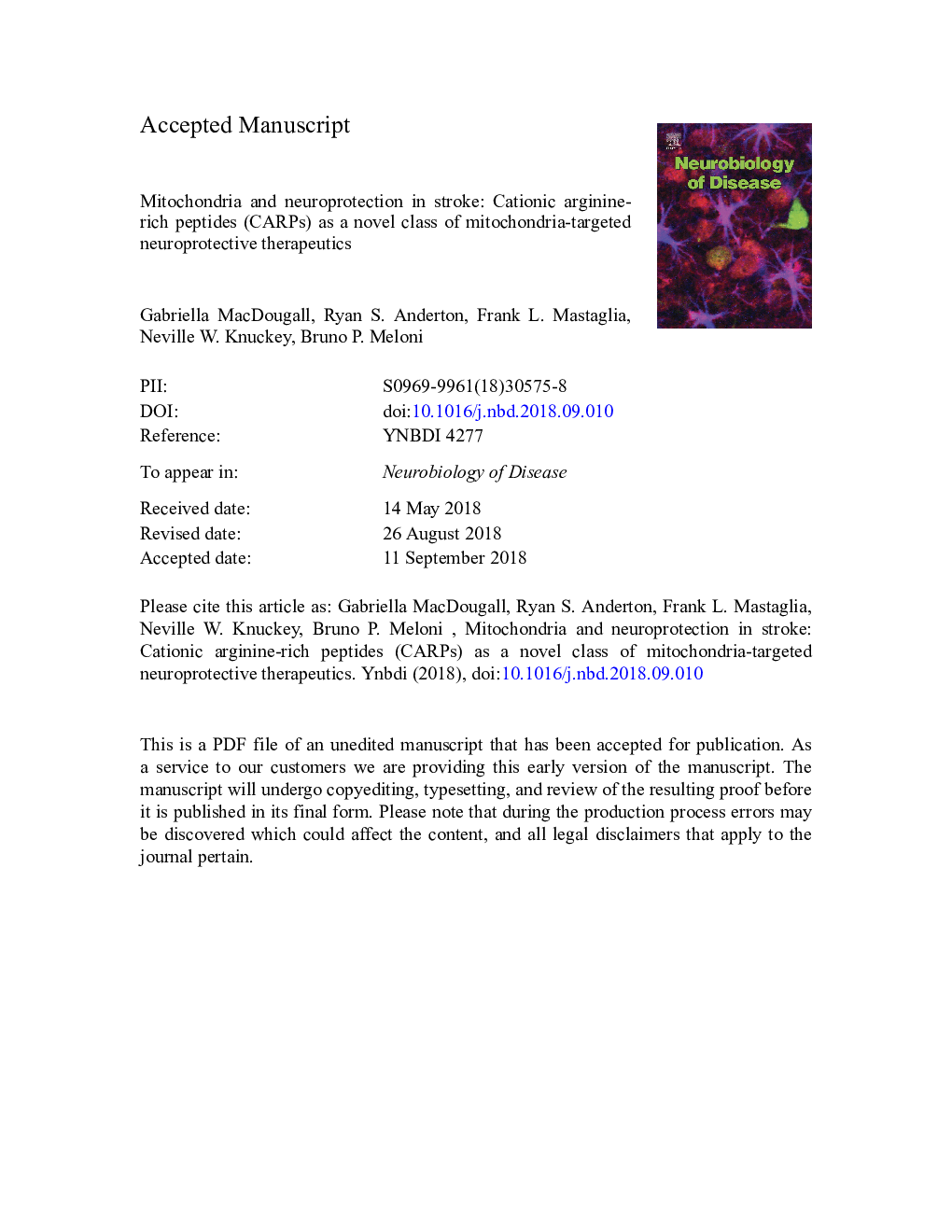| Article ID | Journal | Published Year | Pages | File Type |
|---|---|---|---|---|
| 10215515 | Neurobiology of Disease | 2019 | 60 Pages |
Abstract
Stroke is the second leading cause of death globally and represents a major cause of devastating long-term disability. Despite sustained efforts to develop clinically effective neuroprotective therapies, presently there is no clinically available neuroprotective agent for stroke. As a central mediator of neurodamaging events in stroke, mitochondria are recognised as a critical neuroprotective target, and as such, provide a focus for developing mitochondrial-targeted therapeutics. In recent years, cationic arginine-rich peptides (CARPs) have been identified as a novel class of neuroprotective agent with several demonstrated mechanisms of action, including their ability to target mitochondria and exert positive effects on the organelle. This review provides an overview on neuronal mitochondrial dysfunction in ischaemic stroke pathophysiology and highlights the potential beneficial effects of CARPs on mitochondria in the ischaemic brain following stroke.
Keywords
Related Topics
Life Sciences
Neuroscience
Neurology
Authors
Gabriella MacDougall, Ryan S. Anderton, Frank L. Mastaglia, Neville W. Knuckey, Bruno P. Meloni,
